Blogs
All about Bitcoin, What is Bitcoin, How to Earn from Bitcoin?

What is Bitcoin? How to earn from Bitcoin? Let’s first understand what Bitcoin really is and how it works. In 2009, Satoshi Nakamoto, an anonymous person or entity, released the first ever cryptocurrency – Bitcoin. Since then, this new form of currency has exploded in value, with thousands of other cryptocurrencies starting to emerge over the past few years. Bitcoin has been predicted to be the future of currency by many experts around the world including Warren Buffet – but how does it work? And how can you make money from it?
What is Bitcoin?
Bitcoins (BTC) are a kind of cryptocurrency or digital currency. They are created and held electronically. You can mine it, buy it or earn it through certain programs or trading. They aren’t printed like dollars or Euros – they’re produced by people and businesses running computers all around the world using software that solves mathematical problems in exchange for Bitcoins. The thing that makes Bitcoin different from normal currencies is that it isn’t issued by a government or central bank – hence no country controls it. Instead, there is a computer program that tracks them using an open ledger called blockchain which anyone can check out (if you download special software). In other words: no middlemen and no banks!
How does Bitcoin work?
As its name suggests, a blockchain exists as a chain of blocks: when someone sends bitcoin to someone else for example, a new block containing that transaction will be created and added onto the end of its predecessor. Each block contains information about who sent how much bitcoin to whom and when. The public ledger prevents fraud because everyone in possession of a blockchain has access to it. Yet no one has complete control over it—just like no one controls the Internet. Blockchain technology exists where many other technologies converge: mathematics, cryptography, computer science and game theory. Together they provide us with an incorruptible financial system that’s more efficient than anything we’ve had before.
Is Bitcoin Legal in India?
Is bitcoin legal in India seems to be a frequently asked question these days. With all of the uncertainty surrounding bitcoin’s legal status in India, it can be hard for new users in India to know how they can safely buy and sell bitcoin online. That’s why we’re writing an eBook on how to earn bitcoins that focuses on how someone would go about doing so legally in India. We’ll explain what you need to do before getting started with Bitcoin, including where and how you should open a wallet (along with some of our personal recommendations), as well as what other means of payment work best for converting your money into BTC or your BTC into INR once you’re ready to make your first purchase.
Bitcoin today rate
The cryptocurrency today price continues to rise and has crossed $6000 mark. Amid of expectations of bitcoin hitting $10,000 as per few surveys conducted before which took place during August 2017 with a volatility rate decreasing very fast, had sure became a ray of hope among its users around the world who were left regretting their decision on not buying it at $3000 mark after January or February drop. People across markets have been showing tremendous interest in Bitcoins due to sudden spurt in its value. Currently, there are 12 million bitcoins floating in market-market cap stands at around $70 billion for both combined total market cap for cryptocurrencies present presently. At present point rate 1 BTC= Rs 3 lakhs and has reached new heights as promised by experts following global news sources.
Bitcoin Explained in Layman Terms
What Is a Bitcoin Wallet and How Can I Get One? : Bitcoins aren’t printed or minted like fiat currency—they’re mined. New bitcoins are created by computers as they solve a series of complex math problems. In short, bitcoin users run software that makes their computer work like a server that processes and confirms bitcoin transactions (i.e., solves those math problems). For doing so, their systems are rewarded with newly created bitcoins plus transaction fees. There’s an entire process for how new coins get into circulation—it’s called mining.
Best Ways to Buy Bitcoins in India
There are a lot of Exchanges where you can Buy Bitcoins in India. The fee structure at most of these exchanges will be similar but there might be some differences and hence choosing an exchange wisely comes first. You will also need a bitcoin wallet to store your bitcoins. A bitcoin wallet will create a special kind of address for you. This address will have a combination of 26-35 alphanumeric characters that can be used to receive bitcoins into it. All transactions made using bitcoin are stored in an online public ledger called blockchain which ensures transparency and security for your transactions.
Where can I spend bitcoins in India?
Use bitcoins for all your regular needs. From buying daily grocery items to booking tickets and hotels, you can do it all without having to change your money. It is a bit different in India since bitcoin isn’t accepted as widely as it is in other countries, but there are still some places where you can spend bitcoins in India. [INSERT LIST OF ALL ITEMS AVAILABLE IN INDIA THAT YOU CAN BUY USING BITCOIN] For instance you can go online shopping with online stores that accept bitcoins or if you want to go offline then there are few shops who accept digital currency as payment methods.
Earning Bitcoins – Best Ways for Indians
Bitcoins are a decentralized form of crypto currency. Meaning there is no government backing it and you can use it on your computer or smartphone without setting up an account. There are plenty of ways you can earn Bitcoins online and offline. So start earning now by doing these 8 simple ways listed below: – Start Earning Bitcoins From Faucets: Faucets are one of most widely used ways to get free bitcoins in India. But before we show you that there are many faucet sites where you can claim satoshi every second , here’s a word of warning.
Wrapping Up
Many people have heard of Bitcoins – but few know what they are and how they work. This new virtual currency has caused quite a buzz recently in business and technology circles and many experts predict it will change things as we know them. The purpose of this guide is not to explain how Bitcoins work or discuss whether it’s a bubble; I’ll leave that for others. Instead, I want to make you understand exactly what Bitcoins are so you can decide for yourself if you should include them in your investment portfolio. So let’s begin with what everyone should know first: What Is Bitcoin?
